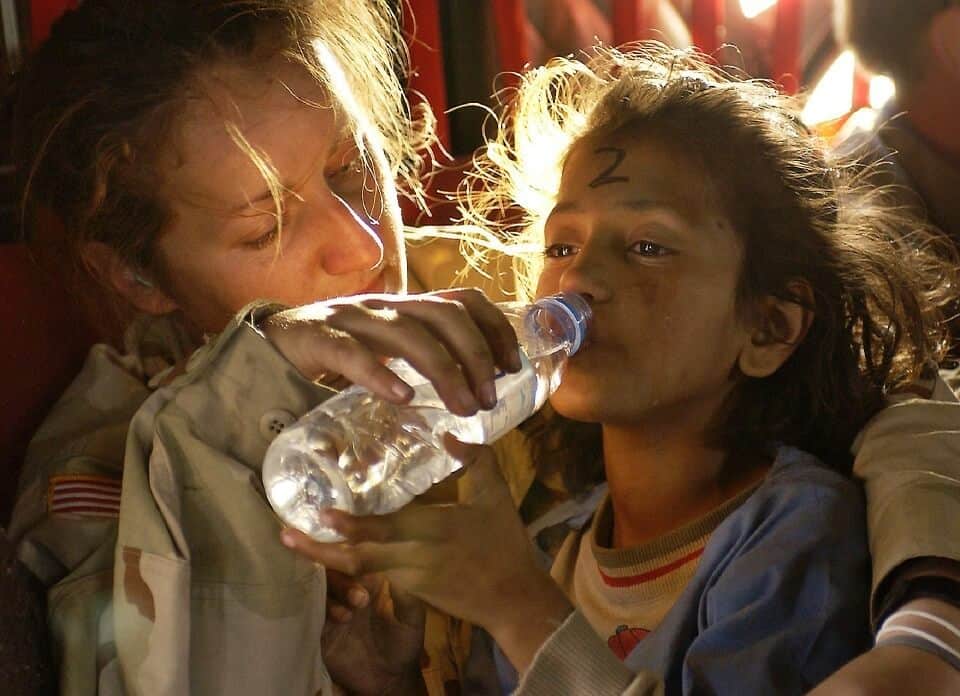What is Solidarity?
by CAPP-USA

Solidarity is a commitment to the common good and genuine gift of self to others.
Defining Solidarity
Solidarity “is a firm and persevering determination to commit oneself to the common good”. It is not “a feeling of vague compassion or shallow distress at the misfortunes of others.” (Pope St. John Paul II, 38)
In fact, “all men and women are called to live as one, each taking care of the other”. We are “our brothers’ keeper”. (Pope Francis, 3)
Perhaps solidarity was best defined by Jesus at the Last Supper: “A new commandment I give to you, that you love one another: just as I have loved you, you also are to love one another.” (John 13:34)
This is a much more radical charge because, how does God love us? Unremittingly. It is no longer love our neighbor as our self but love our neighbor as God loves us. “What is needed is the willingness to “lose ourselves” for the sake of others”. (Pope Francis, 4)
Solidarity Flows From Faith
Solidarity is not an ideological or political principle. It is a Catholic principle – based on and emanating from faith.
Absent this truth, it is not the solidarity of Catholic social doctrine. “Love of neighbor…consists in the very fact that, in God and with God, I love even persons whom I do not like or even know.” (Pope Benedict XVI, 18)
And Solidarity is for our own good and is a necessary component of our faith. “Love of neighbor is a path that leads to the encounter with God, and that closing our eyes to our neighbor also blinds us to God.” (Pope Benedict XVI, 17)
“This can only take place on the basis of an intimate encounter with God”. (Pope Benedict XVI, 18)
In fact, “True brotherhood among people presupposes and demands a transcendent Fatherhood” since “a fraternity devoid of reference to a common Father as its ultimate foundation is unable to endure.” (Pope Francis, 1)
Solidarity and Governments
Solidarity is fundamental to the Christian view of social and political organization (Pope St. John Paul II, 38) and “concern for our neighbor transcends the confines of national communities and has increasingly broadened its horizon to the whole world.” (Pope Benedict XVI, 30)
Why? “Peace and prosperity, in fact, are goods which belong to the whole human race: it is not possible to enjoy them in a proper and lasting way if they are achieved and maintained at the cost of other peoples and nations.” (Pope St. John Paul II, 27)
The Church holds that “…the causes of underdevelopment are not primarily of the material order…it is rather the weakening of brotherly ties between individuals and nations.” (Pope St. Paul VI, 66) “In the last analysis, they are to be found in a current self-centeredness and materialistic way of thinking.” (Pope Benedict XVI)
Solidarity, therefore, implies a dedication to the poor and disadvantaged through individual actions and collective initiatives to make social, political, and economic structures more just and fraternal. “[I]t is a very important duty of the advanced nations to help the developing nations”. (Gaudium et Spes, 86)
In the end, “The development of peoples depends, above all, on a recognition that the human race is a single family working together in true communion, not simply a group of subjects who happen to live side by side.” (Pope Benedict XVI, 53)
Solidarity and Me
We must internalize how radical the principle of solidarity is: “Let us say it once again: the capacity to suffer for the sake of the truth is the measure of humanity.” (Pope Benedict XVI, 39)
Solidarity is also part of our call to holiness: “love of neighbor is a path that leads to the encounter with God, and that closing our eyes to our neighbor also blinds us to God.” (Pope Benedict XVI, 16)
Why? “[B]ecause the love of God, once welcomed, becomes the most formidable means of transforming our lives and relationships with others, opening us to solidarity and to genuine sharing.” (Pope Francis, 3)
It is up to us to weave “a fabric of fraternal relationships marked by reciprocity, forgiveness and complete self-giving, according to the breadth and the depth of the love of God offered to humanity in the One who, crucified and risen, draws all to himself”. (Pope Francis, 10)





